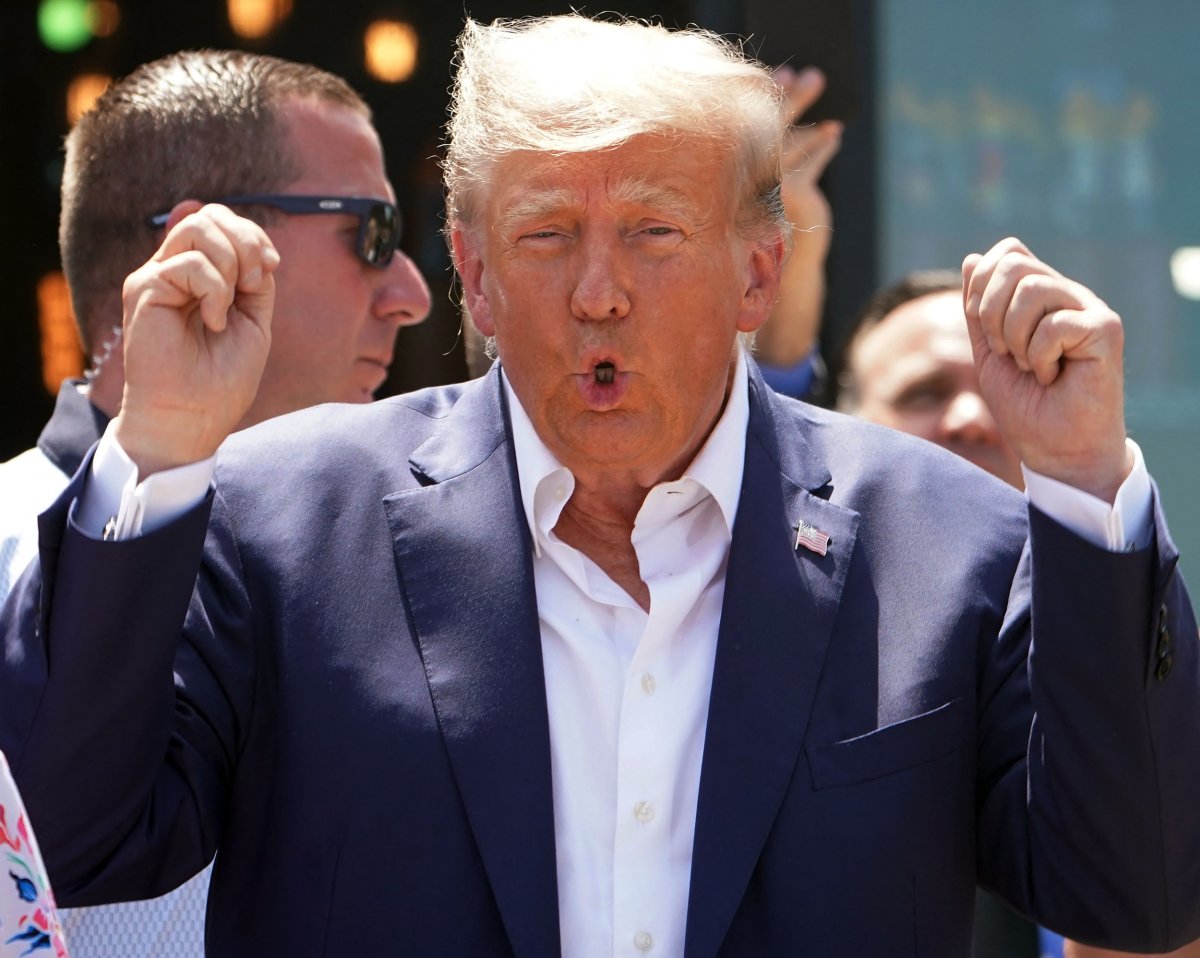Former President Donald Trump addressed the always-controversial self-pardon question in an interview set for broadcast this Sunday. In recent months, Trump has accumulated a host of federal and state charges. Being president again would offer limited utility for neutralizing the New York and Georgia state cases, but there are several ways that presidential clemency could help Trump avoid federal criminal penalties going forward.
The presidential pardon power has always offered more potential than it has shown. The broadly worded pardon clause in Article II of the Constitution suggests the power has few limits. Moreover, legal cases exploring clemency often reach the same conclusion: the president may do pretty much what he wants with it.
As president, Trump compiled a clemency record that stood out from those of his peers. Rather than rely on the Office of the Pardon Attorney to evaluate petitions for presidential mercy, Trump mostly listened to his advisors, celebrities, and media reports. Unlike his predecessors, Trump preferred these more informal means to the Department of Justice when picking his targets for presidential mercy, and often granted clemency to his political allies and connections. He showed then that he was unafraid to explore the grey areas of the clemency power. Given his predilection to push clemency's boundaries, how might this constitutional power protect Trump going forward?

Despite saying "it would look terrible," it is still possible that Trump is currently sitting on a "secret" pardon that forgives him for any federal offenses he may have committed related to the January 6 attack on the Capitol. Before leaving office, he may have signed a clemency warrant that forgives any federal offenses committed up to the date of its issuance. Although pardons are usually recorded with the Pardon Attorney in the Department of Justice, nothing requires it. Trump may have quietly granted himself a pardon as an insurance policy against legal prosecution. Clemency does not require action from another branch of the federal government, so Trump could have easily acted on his own. However, a pardon issued while he was still president in January 2021 would not help Trump with any federal offenses he may have committed after the pardon was granted. Legal complications related to the classified documents snafu occurred after he left office and would not be covered by a "secret" pardon.
Still, assuming a couple of big breaks, Trump may yet be able to count on clemency to protect himself from federal charges that have cropped up since he left office. In his interview, he went to pains to say he could have chosen to pardon himself and characterized the people coming after him as "thugs, horrible people, fascists, Marxists, sick people," thereby setting up a pardon as a potential last resort. To wield the clemency power again, he would first need to secure the Republican nomination for president and then defeat the Democratic nominee (probably President Biden) in the general election—neither task is a sure thing.
But hypothetically, once Trump became president again, he could try to issue himself a pardon and thereby forgive himself for the classified documents scandal. No president has ever attempted a self-pardon, and there is no precedent for such a move. It is not clear what path the self-pardon would travel: would the public accept it? Could someone obtain legal standing to challenge the self-pardon in court? No one knows exactly how circumstances would unfold, but presumably the Supreme Court would eventually have to rule on it.
Another option would be available to a newly elected President Trump, and it would likely be less controversial than a self-pardon attempt. The 25th Amendment provides a mechanism for the president to temporarily step down and allow the vice president to become acting president. Assuming the proper steps were followed, it is possible that Trump could hand over the reins to his new vice president long enough to have the temporary president pardon him, then reclaim his original role and powers. President Trump may ultimately attempt this move to avoid sticky legal questions presented by a self-pardon, including whether the president may judge in his own case, and whether granting a self-pardon violates other constitutional duties of the office. To hedge his bets, Trump may even try both moves simultaneously, hoping that one will eventually work.
At first blush, any of these clemency scenarios might seem a bit of a stretch. In fact, Trump has insisted that "The last thing I'd ever do is give myself a pardon." He may indeed have already passed on the opportunity to pardon himself while still president, and he may even continue to resist the temptation if he is elected president again. But if the Trump experience has taught us anything, it is to look for norms or customs that could be broken to serve the president's interests. As his track record has shown, a newly elected President Trump is still likely to have more interest in disrupting the system than steadying it.
Jeffrey Crouch is an assistant professor at American University and the author of The Presidential Pardon Power.
The views expressed in this article are the writer's own.
Uncommon Knowledge
Newsweek is committed to challenging conventional wisdom and finding connections in the search for common ground.
Newsweek is committed to challenging conventional wisdom and finding connections in the search for common ground.
About the writer
To read how Newsweek uses AI as a newsroom tool, Click here.








